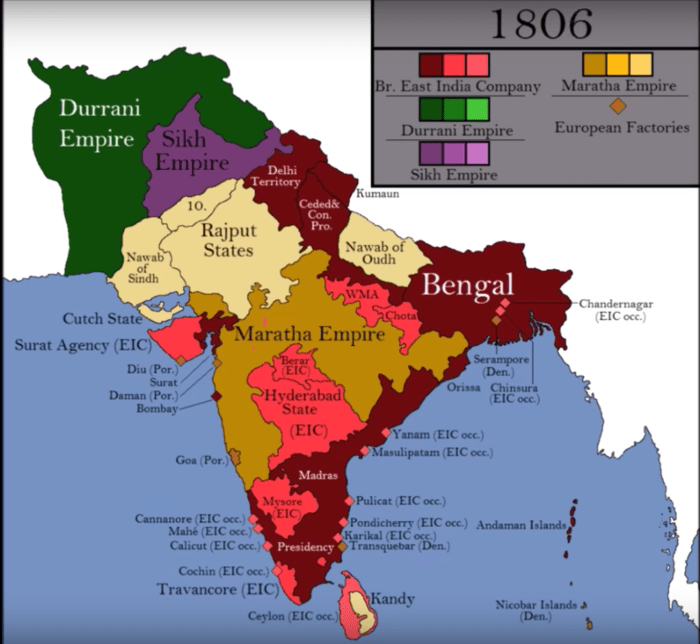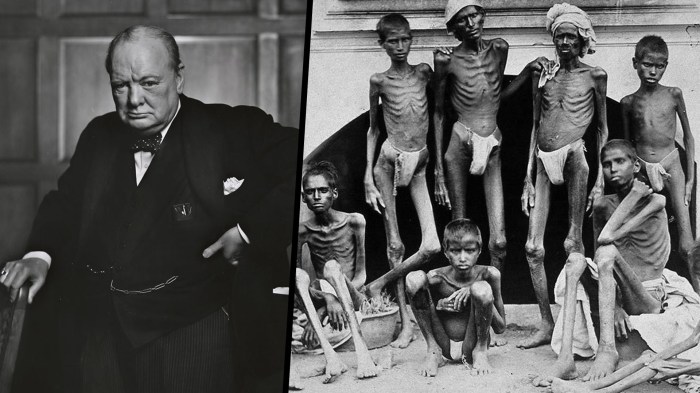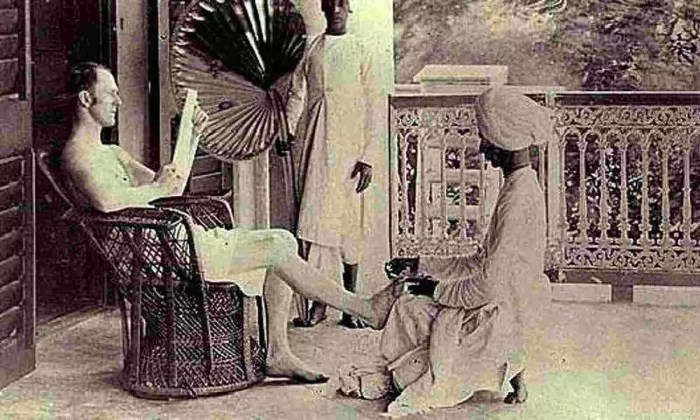Embark on an intellectual adventure with our captivating British Rule of India Crossword. As we delve into the annals of history, we unravel the intricate tapestry of British rule in India, exploring its profound impact on the nation’s social, economic, political, and cultural landscape.
Through the lens of this crossword puzzle, we trace the key events and milestones that shaped this era, examining the economic policies, social reforms, and political transformations that left an enduring legacy on India.
British Rule of India: Historical Overview

British rule in India began in the mid-18th century and lasted for nearly two centuries, shaping the course of Indian history and society.
The East India Company, a private British trading company, gradually gained political and military control over large parts of India, eventually leading to the establishment of the British Raj in 1858.
Key Events and Milestones
- 1757: Battle of Plassey– The British East India Company defeated the Nawab of Bengal, Siraj-ud-Daulah, securing control over the Bengal region.
- 1857: Indian Rebellion– A widespread revolt against British rule, known as the Sepoy Mutiny, was brutally suppressed.
- 1858: Government of India Act– The British Crown took over the administration of India from the East India Company, establishing the British Raj.
- 1885: Indian National Congress Founded– A political organization advocating for Indian independence.
- 1919: Rowlatt Act– Passed by the British government, it authorized the detention of suspected revolutionaries without trial.
- 1947: Indian Independence Act– Granted independence to India and Pakistan, ending British rule.
Economic Impact of British Rule
The British rule in India had a profound impact on the country’s economy. The British implemented a number of economic policies that had a significant impact on Indian society.The British introduced a system of land revenue collection that was based on the permanent settlement.
This system fixed the amount of revenue that landowners had to pay to the government. This led to a decline in agricultural productivity and a decrease in the income of farmers.The British also introduced a system of free trade, which allowed British goods to be imported into India without any tariffs.
This led to the decline of Indian industries and the loss of jobs for Indian workers.The British also established a number of plantations in India, which were used to produce cash crops such as tea, coffee, and cotton. These plantations were often worked by indentured laborers, who were forced to work long hours for low wages.The
economic policies of the British had a devastating impact on Indian society. They led to a decline in agricultural productivity, a decrease in the income of farmers, and the loss of jobs for Indian workers. They also led to the growth of a plantation economy that was based on the exploitation of indentured laborers.
Trade and Commerce, British rule of india crossword
During the British rule, India became a major exporter of raw materials and a major importer of finished goods. The British also introduced a number of new crops to India, such as tea, coffee, and rubber. These crops became important sources of income for Indian farmers.The
British also developed a number of new industries in India, such as the textile industry and the jute industry. These industries provided employment for a large number of Indian workers.However, the economic benefits of British rule were not evenly distributed.
The British favored their own businesses and interests over those of Indians. This led to the growth of a large gap between the rich and the poor in India.
Social and Cultural Impact of British Rule

The British rule in India brought about significant social and cultural changes that left a lasting impact on Indian society. These changes ranged from the introduction of new education systems to the spread of Christianity and the erosion of traditional social structures.The
British introduced a new education system in India that emphasized English language and Western knowledge. This system created a new class of educated Indians who played a key role in the Indian independence movement. However, it also led to a divide between the educated elite and the masses, who continued to be largely illiterate.The
spread of Christianity was another major social and cultural change brought about by the British. Christian missionaries established schools and hospitals in India, and they also converted many Indians to Christianity. This led to the growth of a Christian community in India, which continues to exist today.The
British rule also led to the erosion of traditional social structures in India. The British introduced new laws and regulations that undermined the authority of traditional leaders and institutions. This led to a weakening of the caste system and the joint family system, which had been the backbone of Indian society for centuries.
Role of Education
The introduction of a new education system in India had a profound impact on Indian society. The new system emphasized English language and Western knowledge, and it created a new class of educated Indians who played a key role in the Indian independence movement.However,
the new education system also led to a divide between the educated elite and the masses, who continued to be largely illiterate. This divide had a lasting impact on Indian society, and it continues to be a source of tension today.
Role of Religion
The spread of Christianity was another major social and cultural change brought about by the British. Christian missionaries established schools and hospitals in India, and they also converted many Indians to Christianity. This led to the growth of a Christian community in India, which continues to exist today.The
spread of Christianity had a mixed impact on Indian society. On the one hand, it led to the introduction of new ideas and values, such as the importance of individual rights and the equality of all people. On the other hand, it also led to the decline of traditional Hindu and Buddhist practices.
Political and Administrative Impact of British Rule

The British established a highly centralized political and administrative system in India. This system was designed to maintain British control over the vast and diverse subcontinent.The British introduced a system of direct rule, with the Governor-General as the head of the government.
The Governor-General was appointed by the British Crown and was responsible for all aspects of governance in India. The British also created a system of indirect rule, in which they ruled through local princes and rulers.The British administrative system was based on the principles of efficiency and control.
The British introduced a system of land revenue collection that was designed to maximize revenue for the British government. They also created a system of law enforcement that was designed to maintain order and suppress dissent.The British political and administrative system had a profound impact on Indian society.
The system created a sense of alienation between the British rulers and the Indian people. It also led to the rise of Indian nationalism and the eventual independence of India.
Role of the Indian National Congress and Other Political Organizations
The Indian National Congress was founded in 1885 and was the first major political organization in India. The Congress was initially a moderate organization that sought to work with the British government to achieve gradual reforms. However, over time, the Congress became more radical and demanded complete independence for India.Other
political organizations that played a role in the Indian independence movement included the Muslim League, the Communist Party of India, and the Socialist Party of India. These organizations represented different political ideologies and constituencies, but they all shared the goal of achieving independence for India.The
Indian National Congress and
While solving the British rule of India crossword, you might encounter a clue that relates to the concept of “in essence six sigma seeks to”. In essence, Six Sigma seeks to improve processes by identifying and eliminating defects. This knowledge can help you solve the crossword puzzle and deepen your understanding of both topics.
other political organizations played a crucial role in the Indian independence movement. They mobilized the Indian people and raised awareness of the issue of independence. They also put pressure on the British government to grant independence to India.
Legacy of British Rule in India: British Rule Of India Crossword

British rule in India left a lasting legacy that continues to shape the country today. The effects of British rule can be seen in India’s political, economic, social, and cultural spheres.
One of the most significant legacies of British rule is the introduction of the English language to India. English became the official language of the country, and it is still widely spoken today. This has had a major impact on Indian culture, as English has become the language of education, business, and government.
Another important legacy of British rule is the introduction of the Indian railway system. The railways helped to connect different parts of India and facilitated trade and travel. They also played a role in the development of India’s economy.
However, British rule also had a number of negative effects on India. One of the most devastating was the Bengal Famine of 1770, which killed millions of people. The British also introduced a system of land taxation that led to widespread poverty and indebtedness among Indian farmers.
Overall, the legacy of British rule in India is a complex one. There are both positive and negative aspects to this legacy, and it continues to shape India today.
Question & Answer Hub
What was the primary economic policy implemented by the British in India?
Laissez-faire capitalism
Which Indian political organization played a pivotal role in the struggle for independence?
Indian National Congress
What was the name of the act that granted India limited self-governance in 1935?
Government of India Act
